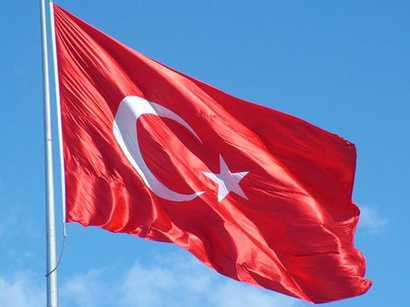Chief of the Turkish Army Redefining the Political Role of the Military
Turkey’s Chief of the General Staff, General Ilker Basbug, delivered a speech at the War Academies Command in Istanbul on April 14 addressing several issues including civil-military relations, national identity, the role of religion, and the fight against terrorism. In a two-hour speech broadcast live on nine TV stations, Basbug tried to erase the image of the military being opposed to religion. He underlined the need to recognize sub-national cultural identities, reiterated his support for the secular and democratic regime in Turkey, drew a distinction between terrorists and innocent civilians and called for a more healthy civil-military relationship (www.tsk.mil.tr, April 14).
Many of the phrases used by Basbug, such as “the people of Turkey” or “terrorists are human beings too,” were considered as “firsts” for the Turkish Armed Forces (TAF), and interpreted as a marked shift in the military’s position on social and political problems. In a symbolic gesture, the TAF opened a press briefing to journalists known for their fierce criticism of the military’s interference in politics, signaling its willingness to reach out to broader sections of Turkish society (Turkish daily, April 15).
For some Turkish analysts, this represents the military’s attempt to adjust to the recent drastic changes within Turkish politics and society. Its new leadership realizes that although elements within the Turkish military interfered in the presidential election through the April 27, 2007 memorandum, it was unable to prevent the election of Abdullah Gul. The AKP’s victory in the July 2007 general elections demonstrated that the Turkish society opposed such military interference in the political process. Moreover, the alleged involvement of a growing number of serving and retired military officers in the ongoing Ergenekon investigation has undermined the popularity of the military, further tilting the balance in favor of civilians, which increased the pressure on the TAF to redefine its position on civil-military relations (Hurriyet, April 14).
Nonetheless, Basbug is known as an outspoken commander whose leadership style does not restrict him to the military, and has strong opinions on the key challenges facing the country (EDM, August 15, 2008). Basbug regularly holds consultation meetings with journalists, academics and intellectuals, which is consistent with his approach and visionary outlook. He regards tackling broader social problems as a self-declared duty.
In this context, Basbug set the tone at the outset of his speech: “I will address the issues of civil-military relations, the fight against terrorism, democracy and secularism from an academic perspective.” He quoted international philosophers and writers as well as the works of Turkish scholars, and referred to scientific studies to support his arguments. Rather than offering an exclusively military-security perspective, he presented a sociological analysis of these issues. On terrorism, for instance, Basbug called for studying its root causes and understanding why militants join terrorist organizations.
Although the moderation of the military leadership is welcomed by civilians and is viewed as a sign of the normalization of Turkish democracy, it has allegedly weakened Basbug’s image and authority amongst the officer corps. The arrests of several military personnel, in addition to retired high ranking military commanders, in the previous wave of the Ergenekon investigation caused disquiet inside the Turkish military. Military officers expected Basbug to state publicly his stance on Ergenekon and the overall role of the Turkish military (Hurriyet, April 14).
Despite his extensive coverage of civil-military relations during his address, Basbug made no direct comment on the Ergenekon investigation. He indicated that he might hold a separate press conference to present his opinions on current issues (www.cnnturk.com, April 14). Basbug’s speech received a mixed reaction from Turkish analysts, partly reflecting his cautious approach based on his awareness of often contradictory expectations. For some, the speech heralded a new era. They found Basbug liberal and supportive of a pluralist democracy. Similarly, some argued that his remarks signaled the TAF might be preparing to support an amnesty for the PKK terrorists. Critics alleged Basbug’s speech was only a compilation of previous statements on these issues and contained nothing new. However, they conceded that there was a shift in the way the military communicates with the public. Basbug adopted moderate language and avoided any hint of confrontation with the political authorities (www.kanaldhaber.com.tr, April 14; Milliyet, Radikal, Hurriyet, Taraf, April 15).
Basbug’s speech revealed the limits on further civil-military reform. He was keen to reassert the interests of the TAF and protect its privileged position. Despite recognizing the constitutional restrictions on the military and acknowledging the supremacy of the government, he called on politicians to consult the military and respect its autonomy. He expressed support for democracy and sought to reach out to the conservative sections of society, while claiming that two smear campaigns were underway against the TAF. One led by those criticizing the TAF using the pretext of promoting democracy, and a second from those seeking to mobilize religious opposition against the military. In particular, Basbug reiterated his ardent opposition to “religious communities” (cemaat), and their growing social, economic and political power. Finally, despite his recognition of Turkey’s cultural diversity, he insisted on protecting the nation-state from globalization. Basbug claims to approach controversial issues from a sociological perspective, while some of his uncompromising views contradict trends within Turkish society.
https://jamestown.org/program/chief-of-the-turkish-army-redefining-the-political-role-of-the-military/



